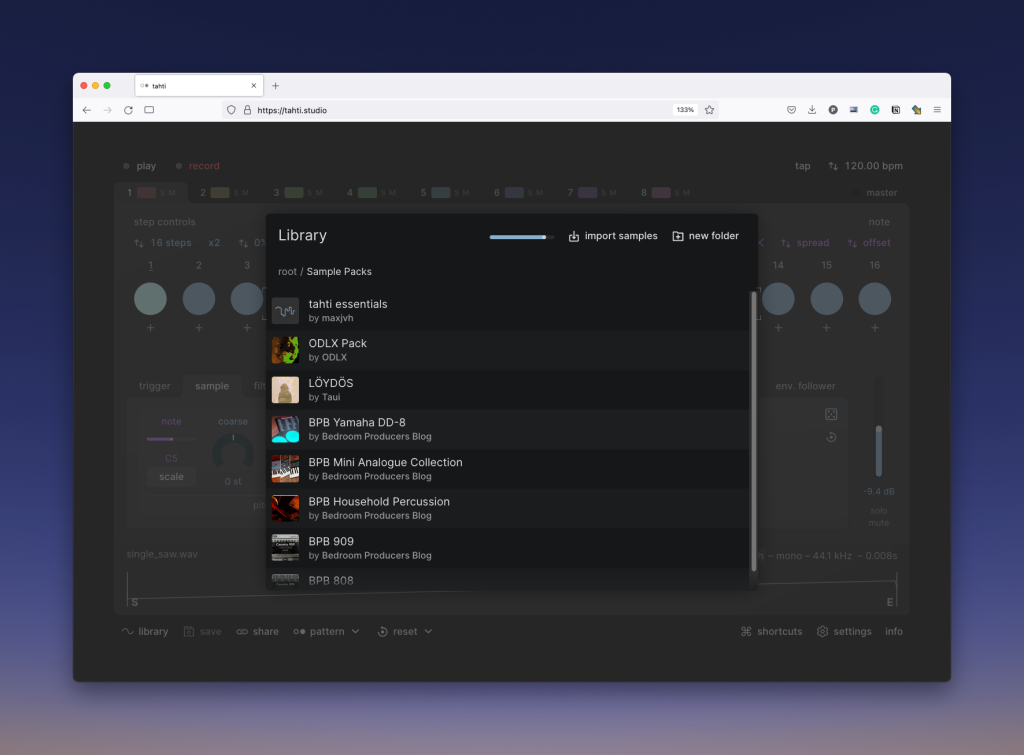It’s a stunningly powerful groovebox you can run in a browser tab – and now, not only is it improved, but there’s a new default open sample library. Of course, that means you’ve got open sounds and patterns for use in other projects, too.
First, the big update – tahti’s default library is a freely-licensed library of drums. That means if you happen to be making your own open browser tools, live coding creations, Pd or SuperCollider instruments, or what have you, this is an instant top choice. The library itself is open to contributions and collaboration (see notes about how in the instructions).
There’s some great stuff to get you started, too – the superb 808, 909, Yamaha DD-8, mini analogue, and household sets are there from BPB, one of my favorite go-to sample makers aka the excellent bedroomproducersblog. (Check their extensive free-as-in-beer offerings; it’s great to see this freely-licensed choice, too!) Apart from being free, the BPB stuff can always be counted on for some personality. There are others in there, too, and I suspect more to come.

Check the library here:
https://github.com/tahti-studio/tahti-default-library
But having stuff freely licensed can open up tons of cross-pollination, as we’ve seen recently in projects like the SURGE synth. It’s not just a matter of SURGE becoming open source; we’re actually seeing particular effects models and oscillators and things passed around between various hardware and software projects. (Depending on licensing, that can even include sharing some bits while other parts remain proprietary because… well, eating is important, too!)
Lots of other updates shipped earlier this month, too:
1.3.0 – February 11th 2022
new:
- the repeat gap parameter can be set to “even” which means
- that the number of repeats will be spread evenly across a step
- the repeat count parameter can be set to infinite
- the repeat gap parameter can be modulated with the LFOs
- patterns can be downloaded and imported as files
- the tempo is randomised each time a new pattern is created
improved:
- the sample library is now an open-source repository
- greatly reduced high-frequency attenuation in the sample
- playback, delay and chorus
- higher update rate for modulation
- more robust and clean-sounding de-click
- the waveforms look better
fixed:
- WAV renderer didn’t respect custom scales
- the first trigger was slightly delayed in certain cases
- rotating steps didn’t respect the length of the sequencer
- miscellaneous things for people using screen readers
- some edge cases around looping samples
Go at it:
Previously: